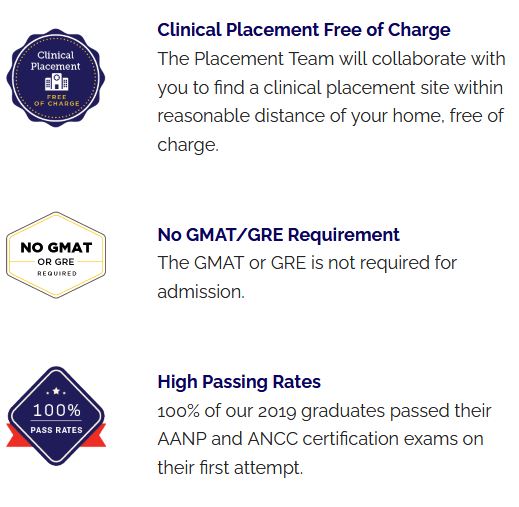Online Doctor of Nursing Practice — Psychiatric Mental Health Nurse Practitioner Program
Become a DNP-Prepared Psychiatric Mental Health Nurse Practitioner
Marymount University’s online BSN to DNP-PMHNP program equips you with the knowledge and skills to become an advanced practice psychiatric mental health nurse practitioner through a strongly focused curriculum based on ethics and evidence-based care.*
Coursework in the online DNP program is 100% remote, yet with the residency experience on Marymount’s campus in the Washington, D.C. area, you’ll benefit from a global perspective that empowers you to make a difference as a nurse practitioner locally, nationally, and internationally.
In just over three years, you can graduate fully prepared for the AANP or ANCC PMHNP certification exam and start your career in advanced nursing practice as a DNP psychiatric mental health practitioner. With this degree, you’ll care for patients with mental health disorders or substance abuse problems and use doctoral-level skills in quality improvement, informatics, and policy to influence health care innovation.
*The BSN to DNP-PMHNP program does not confer a master’s degree.
Specialize in Psychiatric and Mental Health Nursing as a DNP-Prepared PMHNP
Marymount’s online PMHNP program centers around holistic, compassionate care and patient advocacy. As a DNP graduate and having honed your skills as an advanced practice nurse, you will have deepened your knowledge of the global scope of health care policy and systems to apply translational research to make an impact. You will also be able to:
- Explain the basic principles of pharmacology and pharmacotherapeutics related to psychopharmacological therapeutic agents, including classes, mechanisms of action, and symptoms of adverse drug reactions.
- Explore the individual and family’s health beliefs to create an individualized, holistic, and evidence-based plan of care to promote optimal outcomes.
- Discuss pertinent ethical-legal issues, cultural considerations, and bias when prescribing psychopharmacological therapeutic agents across the lifespan.
- Distinguish differential diagnoses and propose an evidence-based care plan for common psychiatric or mental health complaints.
- Develop communication strategies with individuals, families, and the interdisciplinary team to promote optimal health outcomes.
- Assume increasing responsibility and accountability as a psychiatric mental health nurse practitioner in providing quality care within the legal scope of practice.
Expert Faculty, Unmatched Student Support
Our highly engaged faculty sees each student as an individual. You’ll learn from practicing PMHNPs who are experts in their field as you translate theoretical knowledge from the sciences and humanities into delivering advanced nursing care to diverse populations. You’ll benefit from access to a dedicated Student Success Advisor, who will work with you to ensure you have the resources you need to complete your degree.
Marymount Manages Your Clinical Placement
Marymount works with you to offer a high-quality placement experience that meets the University’s clinical requirements and prepares you for success in your future practice.
Make a Difference as a DNP-Prepared PMHNP
Marymount’s online DNP-PMHNP program focuses on advanced clinical education, compassionate care, and service-oriented learning experiences that empower nurses to make a difference in the global community. As a DNP-prepared psychiatric mental health NP, you will be equipped to provide quality mental health care in a complex, ever-changing environment. In this program, you will:
- Develop new approaches to advanced nursing practice and health care delivery based on scientific knowledge, nursing theories, and other disciplines.
- Demonstrate clinical, organizational, and systems-level leadership by designing innovative models of care.
- Design methods for evaluating clinical outcomes to direct evidence-based practice for improving health care outcomes.
- Utilize knowledge drawn from epidemiological, statistical, and technological data to implement quality improvement initiatives for practice with individuals, aggregates, or populations.
- Lead interprofessional teams in the analysis of complex practice and organizational issues.
- Demonstrate leadership in health policy advocacy at the local, state, and federal levels.
- Demonstrate advanced clinical judgment, systems thinking, and accountability in designing, delivering, and evaluating evidence-based care to improve patient outcomes.
- Apply ethical analysis when generating policy, research, and practice.
- Use conceptual and analytical skills in evaluating the links between practice, organizational, population, fiscal, and policy issues.
Program Features

Admission Requirements

Program Curriculum Snapshot

Frequently Asked Questions







